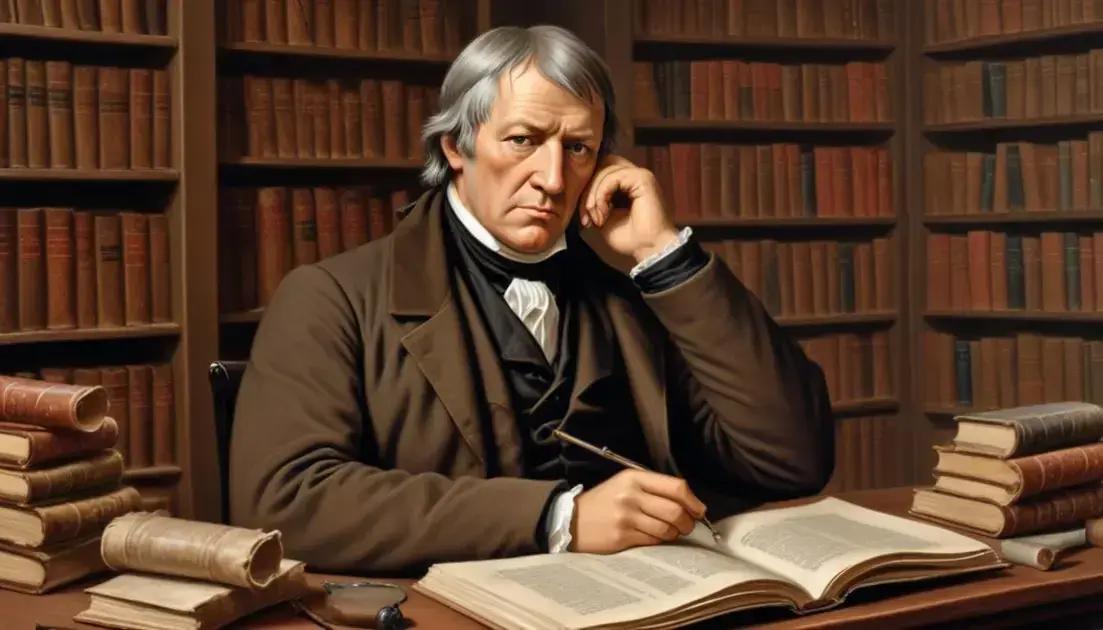
Hegel: Dialectics and the Movement of History
Hegel’s philosophy profoundly influences modern thought by emphasizing the evolution of spirit and reason, and the importance of dialectics. His ideas challenge us to explore freedom as a continuous journey shaped by conflicts and resolutions in history. By examining these concepts, we can gain deeper insights into our values, governance, and societal dynamics, making Hegel’s work relevant for understanding contemporary issues.
Hegel perceived history not merely as a series of events but as a profound evolution of spirit and reason. Dive in and explore how his dialectical methods can enlighten our understanding of history!
Hegel’s Philosophy of History
Hegel’s Philosophy of History is fascinating and layered. Hegel believed that history is not just a collection of dates and events. Instead, he saw it as the unfolding of human consciousness and freedom. Each historical event is part of a larger story that shows how reason develops over time.
According to Hegel, the dialectical method is key. This method revolves around the idea of thesis, antithesis, and synthesis. A thesis presents an idea. An antithesis opposes it. Then, through struggle and conflict, a synthesis emerges, creating new understanding. This process demonstrates how ideas evolve.
Hegel thought that history has a purpose. He argued that it is moving towards the realization of freedom. As time progresses, our understanding of freedom deepens and expands. Each era builds upon the past and leads to greater awareness.
This philosophical view impacts how we study history today. It challenges us to look beyond events and consider the ideas and values driving those events. For Hegel, understanding history means exploring human development and the spirit’s journey.
In summary, Hegel’s philosophy encourages us to see history not as random but as a meaningful process. It shows us how humanity strives for greater freedom and understanding through conflicts and resolutions.
Understanding Dialectics
Understanding Dialectics is key to grasping Hegel’s philosophy. Dialectics involves a process of change and development. It often starts with a disagreement or conflict. This could be ideas that clash or opposed viewpoints. From this struggle, new understanding emerges. This process is crucial in shaping history.
Hegel’s dialectical method has three parts: thesis, antithesis, and synthesis. The thesis is an initial idea, while the antithesis is the opposing idea. Together, they create a new idea called the synthesis. This synthesis doesn’t just settle the conflict; it evolves the ideas into something better.
For example, think of a debate. One side presents an argument (thesis). The other side offers counterarguments (antithesis). Through discussions and debates, a common ground may be found (synthesis). This new understanding can lead to progress and further debates.
Dialectics is not just about conflict. It shows how the world and ideas develop over time. Each resolution leads to new challenges and conflicts. This ongoing process reflects the progress of human thought and culture.
In studying Hegel, we see dialectics as a way of thinking deeply about change. It helps us understand how history and human ideas are connected, showing us that every conflict can lead to new possibilities.
The Evolution of Spirit and Reason
The Evolution of Spirit and Reason is a key concept in Hegel’s philosophy. Hegel believed that history shows how human thought develops over time. He argued that this evolution reflects our growing understanding of freedom and self-awareness.
At its core, this evolution means that our ideas and beliefs change as we experience the world. Spirit refers to the collective consciousness of humanity. It’s about how we think as a society. Over time, our spirit evolves through cultural achievements, struggles, and conflicts.
Reason plays a big role in this process. As we face new challenges, our understanding grows. This deeper understanding of reason leads us to new ideas and solutions. Hegel believed that through struggle and conflict, we uncover better ways to think and act.
In every era, people grapple with their circumstances. They question their beliefs and ideals. This ongoing questioning results in growth. For example, major historical events like revolutions symbolize shifts in human thought and values.
Hegel thought this evolution is essential. It shows us how humanity can aspire to greater freedom. Each step forward is a step toward understanding our place in the world and our connections with one another.
Historical Context of Hegel’s Ideas
Historical Context of Hegel’s Ideas is essential to understanding his philosophy. Born in 1770, Hegel lived through important events in Europe. The French Revolution greatly influenced his thinking. It showed the struggle for freedom and rights but also chaos and conflict.
During Hegel’s time, many ideas were shifting. People questioned traditional beliefs and authority. The Age of Enlightenment had emphasized reason and individual rights. These changes made Hegel think about how ideas develop over time.
Hegel believed that history is progress. He saw history as a process that leads to greater freedom. This view was different from others who saw history as merely a series of events. Hegel saw each event as part of a larger unfolding of human spirit and reason.
The rise of nationalism and changes in society also shaped his ideas. Hegel thought that nations develop their own identity and spirit. This spirit reflects the collective experience of its people.
Understanding the historical context helps us see why Hegel’s ideas matter. They offer a way to think about how past events shape our present and future. His philosophy invites us to explore how conflicts and resolutions lead to a deeper understanding of freedom and progress.
Impact on Modern Thought
Impact on Modern Thought shows how Hegel’s philosophy shapes ideas today. His notions of dialectics and history influence many fields. These fields include politics, sociology, and even psychology. Hegel encourages us to think about the progress of human thought over time.
One major impact is on how we view freedom. Hegel believed that freedom is a journey, not a destination. This view inspires people to explore their understanding of freedom and rights in society. His ideas challenge us to consider how history affects our present choices.
In politics, Hegel’s thoughts push us to look at the state as a reflection of the people. He argued that a government’s role is to support the spirit of its citizens. This concept raises questions about governance, democracy, and rights today.
Also, Hegel’s dialectical method inspires modern philosophers and social thinkers. His approach helps them analyze complex events and ideas. They see discussions as dynamic, with each viewpoint contributing to a richer understanding.
In education, his emphasis on critical thinking influences teaching methods. Students learn to question and explore ideas deeply. This skill is vital in today’s world, where information is abundant and perspectives vary.
Overall, Hegel’s philosophy remains relevant. It encourages ongoing dialogue about our values, beliefs, and the world around us. By reflecting on his ideas, we continue to shape modern thought and our understanding of humanity.
Conclusion
In conclusion, Hegel’s philosophy has a lasting impact on how we think today. His ideas about freedom, dialectics, and the evolution of spirit encourage us to explore deeper truths about humanity. By looking at history as a series of conflicts and resolutions, we can better understand our present and future.
Hegel challenges us to question our beliefs and engage in meaningful dialogues. His thoughts inspire not just philosophers but everyone who seeks knowledge. As we reflect on his teachings, we continue to develop our understanding of society, politics, and our individual freedoms.
Ultimately, embracing Hegel’s ideas can lead to personal growth and a richer understanding of the world. This journey of exploration and reflection is essential for a thoughtful, engaged society. So, let’s keep asking questions and seeking answers, inspired by the profound impact of Hegel’s wisdom.


